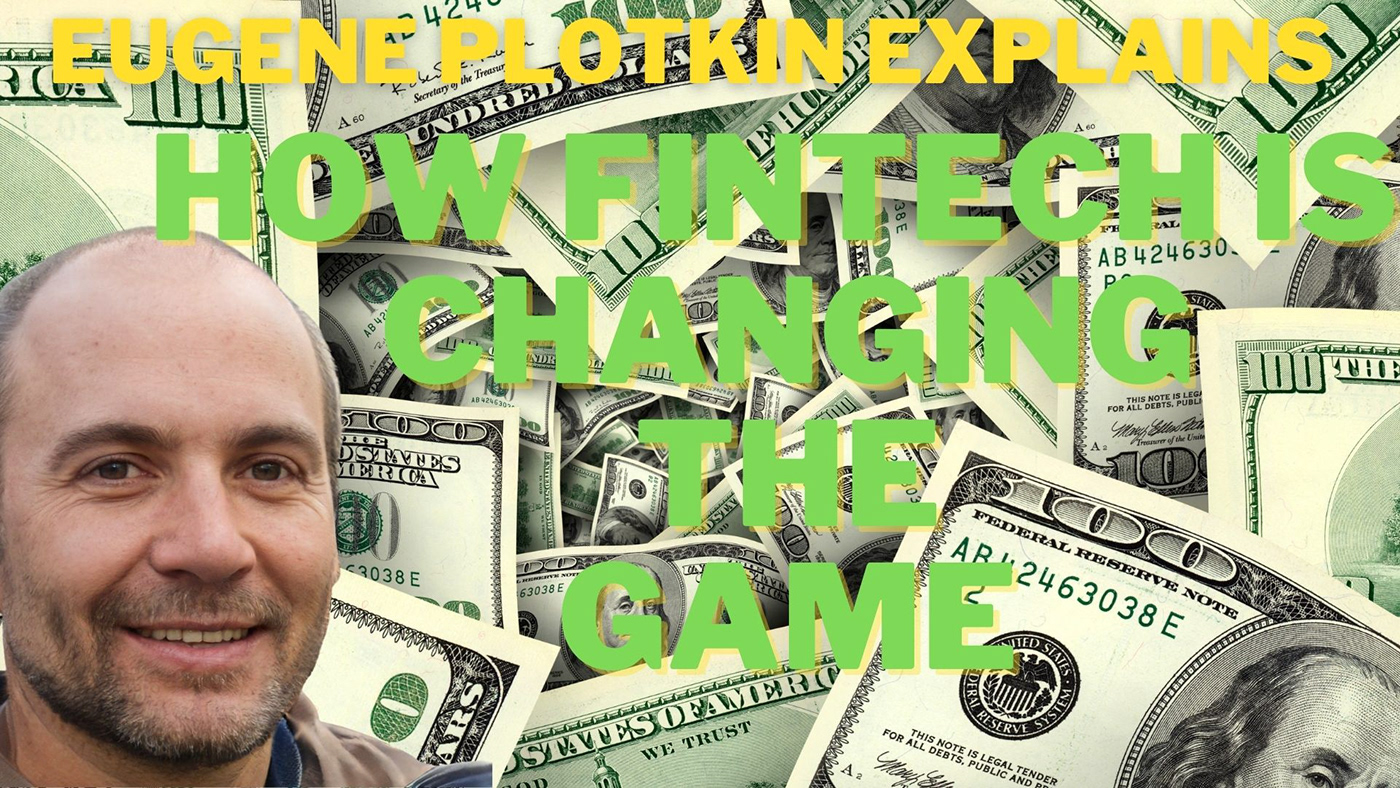
Ridiculous hours. Miserly interest rates. Sky-high fees. For years, banks have forced their customers to accept poor deals in exchange for access to their own money.
But there is hope.
Former investment banker and fintech expert Eugene Plotkin says a sea change is approaching with the potential to upend the modern financial system and replace it with a more efficient and customer-friendly alternative.
“Big banks simply have not kept up with the digital age, and there are several apps out there right now that are ready to deliver those same services in new and better ways,” Plotkin says. “Mobile apps are letting customers open accounts in less than two minutes without leaving the couch. People can transfer money with the push of a button. We’re seeing everything becoming faster, easier, and more efficient. That’s good news for customers.”
It’s fair to say the public opinion on banks has never been overwhelmingly positive, but the bailout that came during the 2008 financial crisis may have been its nadir. With their reckless actions suddenly exposed to the world, banks’ reputations faced a low point that new technology has been happy to exploit.
“The digital age has shown us, time and time again, that when industries don’t keep pace with changes, someone else will,” Eugene Plotkin says. “Now, disruption is usually localized to just one area, but because of the nature of the financial industry, the changes that are happening there will have ripple effects far larger than we saw with Uber or even Netflix. Fintech will affect everything.”
Seemingly overnight, companies like SoFi and Prosper Marketplace have effectively excised banks from entire lending arenas. These apps match borrowers and investors in ways that benefit both parties. Not only are loans happening at a faster clip, they’re occurring at lower rates for consumers and with less risk for investors.
Or consider the payments space, where companies like Affirm Holdings, which offers credit to online shoppers at the point of purchase, are transforming the increasingly important field of online shopping. By integrating with digital retailers, Affirm helps consumers spend more money and receive instant financing. It’s a completely new way to think about credit — and it’s expected to generate $1.3 billion in revenue this year.
Investors have taken notice.
Just two years ago, the fintech startup Plaid inked a deal to sell itself to Visa for $5.6 billion. The sale fell through, but shortly after, the company issued a fundraise based on a $15 billion valuation. Affirm went public last year, and it already boasts a market capitalization of over $20 billion. That’s more than 40 times its yearly revenue.
Those are hardly the only cases of astronomical valuations in the fintech arena. Serious money is attaching to these nascent companies because of their high yield potential. Venture capitalists are betting on the system upending itself, establishing a new pecking order.
Fintech has already led revolutions in some financial sectors. Real estate companies like Redfin have made billions by cutting away the inefficiencies of traditional brokerage. Gone are the days of 6% fees and long meetings with the bank and title company. Sellers can list their properties online, where buyers already are, and pay fees closer to 4%. Even developers, who have relied on institutional financing for decades, are turning to digital products to find lenders.
“The ideas behind most of the fintech startups are quite simple,” Eugene Plotkin explains. “They’re things that consumers have wanted for years. Make it faster, cheaper, safer — that’s what everybody wants. That’s why companies like Redfin have been able to leverage a large base of users so quickly. Consumers already know what they want. Technology is finally now making it possible.”
Insurance, another industry that’s long been hostile to consumers, is also becoming disrupted by recent fintech launches. By leveraging huge amounts of data, new insurance businesses are effectively ending the headaches traditional brokers have given customers for years. Instead of long waits for payments, bait-and-switch offers, and policies that cost more every year, fintech apps provide better deals and faster service through efficiency.
Companies like Lemonade Inc. have been luring customers away from legacy insurers by using artificial intelligence (AI) to deliver new policy quotes and payouts in seconds.
The turbocharged growth in fintech has already changed the game in some ways. Where some see an attempt to grasp the future, others see a bubble. As a former investment analyst with Goldman Sachs, Eugene Plotkin is no stranger to spotting odd deviations in the market.
“There is some overvaluation, certainly, but that doesn’t mean the entire movement is wrong,” he says. “There’s not going to be a single winner among new fintech startups. There’s going to be many, many companies that become very profitable. Right now, there are several businesses laying the groundwork that future apps will build upon. It’s an exciting time, and the hypergrowth is certainly warranted, even if some of the bets being made right now won’t pan out.”
